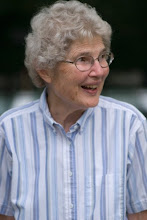Sunset tomorrow starts the holiest day of the year for Jews: Yom Kippur, the Day of Atonement.
I can only recall having gone to Yom Kippur services once or twice, but I fast every year and I try to be a good "Google Jew" and study the appropriate prayers and traditions on the internet the night before--tonight--in preparation.
Two parts of the Yom Kippur liturgy, in particular, mean a lot to me. One is Ashamnu, a prayer expressing collective confession for sins. The other is Kol Nidre, a renunciation of all the vows that we will make during the coming year.
Kol Nidre has been, and in certain circles still is, highly controversial. Some take it as evidence that Jews are inherently untrustworthy--why believe someone who has already publicly renounced all the year's vows?
To anyone who follows the rest of the liturgy, however, it is clear that Jews take honesty very seriously indeed. Kol Nidre, in fact, was developed specifically because Judaism advocates strict integrity--in classical Jewish thought, you are accountable for broken promises even if they were made thoughtlessly, or even if circumstances change such that keeping them becomes impossible. Kol Nidre is to remind us that we cannot always do what we hope to do, that we do not have the power to truly guarantee the fulfillment of even our most sincere promises. It was a comfort to medieval Jews forced to accept medieval Christianity or die. It is a comfort to parents who can't do everything they'd wanted for their children, and for children who can't be everything that hoped to be for their parents.
While writing a set of very short (300 word or less) stories last year, I decided that the idea of Kol Nidre speaks in a special way to many immigrants' experience. Below is the story I wrote based on this idea:
Kol Nidre
Abuela, whose grave I had promised to always visit—I'm sorry.
That garden plot, mother, I told you as a child I would tend when you got old and your joints turned hard—whisper my apologies to the weeds.
My wife, who can't go see her brother at his wedding, in case she somehow wouldn't be able to make it back past immigration—forgive me.
Mijo, I said you would have it better than me, but now—we'll see.
My father, who prepared me to live in a world he didn't know was disappearing—have I disappointed you?
Ernesto, who wanted to go through the best and worst with me—if you have a steady one, could you send me your address?
Everyone who is still somewhere, every sun that rises over my old home and does not see me, every drop of rain God sends to nourish crops I haven't sown—what happened to the life I'd thought I would lead?
All vows, all the vows I didn't dream I wouldn't be able to keep—please, please, release me.
Reading at Writ & Vision Thursday
-
I'm going to be doing a reading at Writ & Vision in downtown Provo at 7 pm
this Thursday.
I'm excited: I love to read my work, but I don't actually do so v...
6 years ago



